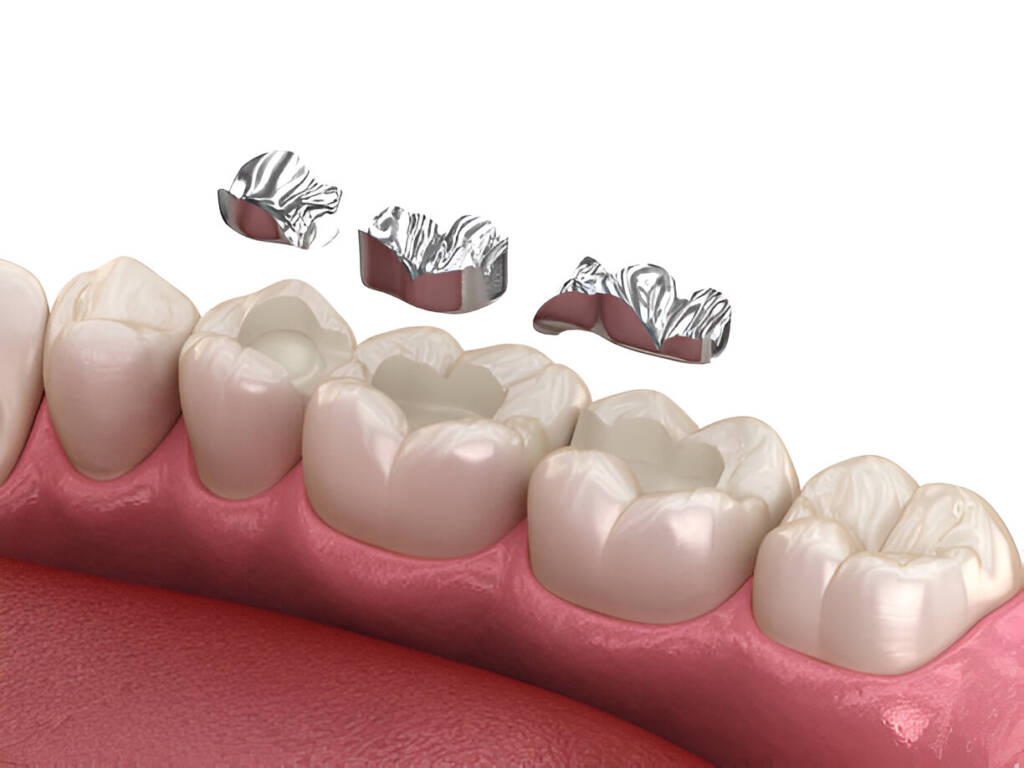Composite bonding is a popular dental procedure known for its effectiveness in fixing various cosmetic issues, including gaps between teeth. But can composite bonding fill gaps? Let’s delve into how composite bonding works and its effectiveness in addressing gaps between teeth.
Understanding Composite Bonding
Composite bonding involves applying a tooth-coloured resin to the teeth. This resin is then shaped and moulded to correct imperfections. The process is straightforward and usually completed in one visit to the dentist. It is a cost-effective and less invasive alternative compared to other cosmetic dental treatments.
How Composite Bonding Fills Gaps
Composite bonding can effectively fill gaps between teeth. Here’s how it works:
- Preparation: The dentist starts by selecting a resin colour that closely matches your natural teeth. This ensures that the bonded teeth blend seamlessly with the rest of your smile.
- Etching: A gentle acid is applied to the surface of the teeth to roughen them slightly. This step helps the bonding material adhere better.
- Application: The dentist applies the composite resin to the teeth, building up enough material to fill the gaps. The resin is carefully shaped and moulded to ensure a natural look.
- Curing: A special light is used to harden the resin. This process, known as curing, takes just a few minutes.
- Polishing: Finally, the bonded teeth are polished to match the sheen of your natural teeth, giving a smooth and natural appearance.
Benefits of Using Composite Bonding to Fill Gaps
Composite bonding offers several benefits when it comes to filling gaps:
- Aesthetic Improvement: Composite bonding enhances the appearance of teeth, making your smile look more attractive.
- Quick Procedure: Most treatments are completed in a single visit.
- Cost-Effective: It is less expensive compared to other cosmetic dental procedures.
- Non-Invasive: It requires minimal removal of the tooth enamel.
- Reversible: Since the procedure is non-invasive, it is often reversible.
Effectiveness of Composite Bonding for Gaps
Composite bonding is highly effective in filling small gaps, also known as diastemas. Here’s why:
- Precision: Dentists can shape the resin to fit perfectly into the gap, ensuring a natural look and feel.
- Strength and Durability: Once cured, the resin is strong and durable, capable of withstanding the pressure of biting and chewing.
- Colour Match: The resin can be coloured to match your natural teeth, making the bonded area unnoticeable.
The Procedure in Detail
Let’s explore the procedure in detail to understand how it works to fill gaps:
- Consultation: During the initial consultation, the dentist examines your teeth and discusses your cosmetic goals. They determine if composite bonding is the right solution for your gaps.
- Preparation: No anaesthesia is usually needed unless the bonding is used to fill a decayed tooth. The dentist starts by selecting the resin colour that matches your teeth.
- Etching: A mild acid solution is applied to the teeth to create a rough surface, helping the resin adhere better.
- Bonding: The resin is applied and moulded to the desired shape. The dentist uses a special light to harden the resin quickly.
- Final Touches: After the resin hardens, the dentist trims and shapes it further if necessary. The bonded area is then polished to match the rest of the tooth.
Maintenance and Care for Bonded Teeth
Taking care of bonded teeth is essential for maintaining their appearance and longevity. Here are some tips:
- Good Oral Hygiene: Brush your teeth twice a day and floss daily to keep your teeth and gums healthy.
- Avoid Staining Foods and Drinks: The resin can stain, so limit your consumption of coffee, tea, and red wine.
- Regular Dental Visits: Visit your dentist regularly for check-ups and cleanings to ensure your bonded teeth remain in good condition.
Conclusion
Composite bonding is a versatile and effective solution for filling gaps between teeth. It offers a quick, cost-effective, and minimally invasive way to enhance your smile. With proper care, bonded teeth can last for many years, giving you a confident and attractive smile.
If you have gaps in your teeth and are considering composite bonding, consult your dentist to see if this treatment is right for you. They can provide more information and help you achieve the smile you desire.
Can You Get a Dental Implant Years After Extraction?
Discover Your Perfect Smile at Cove Dental and Implant Centre
If you’re considering composite bonding to fill gaps and enhance your smile, visit Cove Dental and Implant Centre. Our experienced team is dedicated to providing top-quality dental care and achieving stunning results. Schedule your consultation today and take the first step towards a more confident smile!
FAQs on Composite Bonding for Filling Gaps
How long does composite bonding last?
Composite bonding can last 5-10 years with proper care, such as good oral hygiene and avoiding hard foods.
Is the composite bonding procedure painful?
No, composite bonding is typically painless and doesn’t require anaesthesia unless filling a decayed tooth.
Can composite bonding fix large gaps?
Composite bonding is best for small to moderate gaps. Large gaps may require other treatments like veneers or braces.
How long does the bonding procedure take?
The procedure usually takes 30 to 60 minutes per tooth and is completed in one visit.
Does composite bonding require special care?
No, just maintain good oral hygiene, avoid biting hard objects, and limit staining foods and drinks.
Can bonded teeth be whitened?
No, composite resin doesn’t respond to whitening treatments. Consider whitening teeth before bonding.
Is composite bonding suitable for children?
Yes, composite bonding is safe and effective for children to fix minor gaps and chips in their teeth.
How Much Is Composite Bonding?





